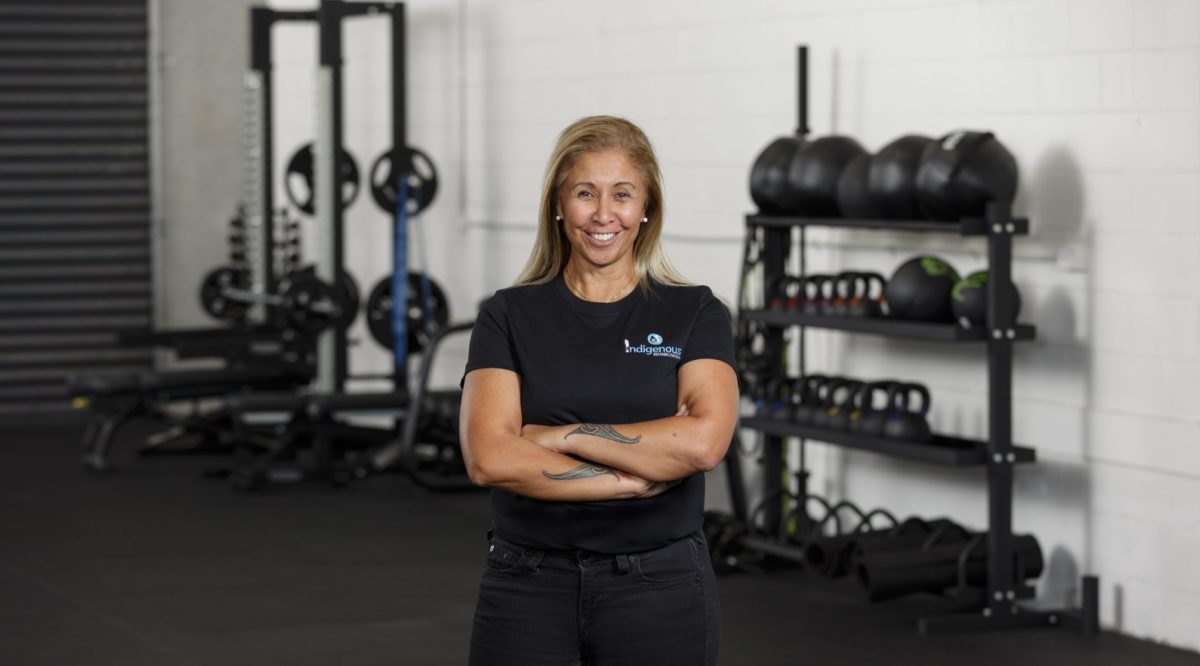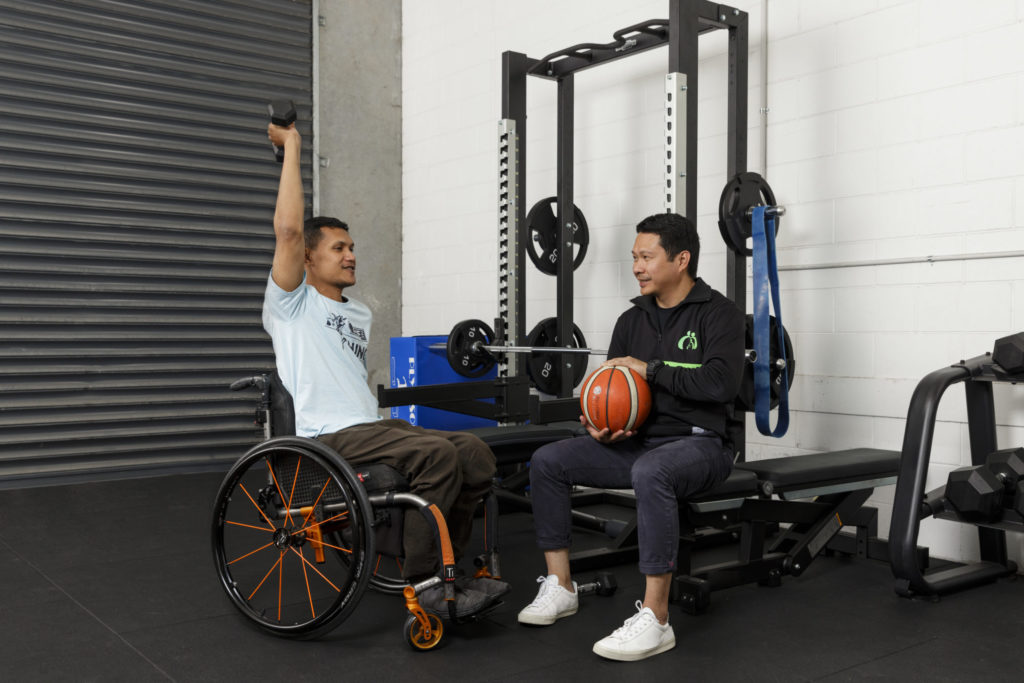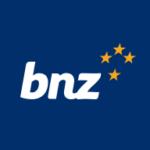Behind the business: Charmeyne Te Nana-Williams, What Ever It Takes
10 Dec 2021
Every business is important to someone. So they’re all important to us.
In this series, we’re chatting to some BNZ customers and getting to know the people, and inspiration, behind the business.
What Ever It Takes is a home-based rehabilitation services group established by Charmeyne Te Nana-Williams and her husband Peter Williams as a result of their personal experiences.
What is your personal business journey and the inspiration behind What Ever It Takes (WEIT)?
In 2002, I went through a personal situation – the whole year was a write off. My twins were born 12 weeks premature, so that was really challenging because one of them was not expected to live. But we got through that, then a month after they were born, I found out I was pregnant again. I went into premature labour with my son, but unfortunately, he passed away. Then a month, pretty much to the day, after that, Peter – my partner – sustained a traumatic brain injury. He was in Timaru at the boxing nationals, boxing to be the New Zealand super heavyweight. He won the title but sustained a brain injury during the fight. About half an hour after the fight, he collapsed and ended up being tetraplegic and non-verbal.
I was thrust into this whole health sector scenario. At the time I was working as an export consultant for New Zealand Trade and Enterprise, so the health sector was so far removed from my life that it was like I was living on another planet.
We had to go through the process of having to go through ICU, travelling from the South Island to Auckland to the hospital, keeping our kids together, fighting to get back into a rehab facility, then having to be stuck there for three years, and then fighting to get home.
I always felt like every time there was a change or move that it would get better, but it never did. It wasn’t until Peter was abused by a caregiver who was employed by an agency – that was the straw that broke the camel’s back. I went to ACC and said, “look, you need to sort this out for us and the only way that we can do that is to set up our own company. And I want Peter to come home.” I knew that if I didn’t do something drastic that it would tear my family apart.
ACC pay for these different entitlements and one of them is called social rehabilitation, which includes modifying your house to come home to, but they declined my grant for 3 years.
Challenge upon challenge really was the motivation and what instigated everything to come to fruition.
Our kaupapa is to try and help families come home despite the level of injury and to build a care team around them that is going to help them achieve their goals as individuals.
Do you feel that you are fulfilling what you set out to achieve with your business? Has anything changed along the way?
Definitely, and I think what we’ve managed to do is grow it. WEIT has become What Ever It Takes Group. Under WEIT Group, we have WEIT home-based rehabilitation and support services, so that implements all the programs of care. Then we also have Indigenous Rehabilitation that incorporates our clinical arm and our training and mentoring arm. We have a tuakana teina model that lives under there, which is a mentoring, educational and training program, so it’s like an older sibling guiding a younger sibling. We also have a clinical contract through ACC, that’s been something we’ve been working on for years so finally it’s coming to fruition.
Our newest company is called I-Awhi – that’s really exciting. It’s an app that we’ve developed around the whole notion of keeping people connected. In the centre of this, sits the client with the disability and their whānau, and then around that sits our kaiāwhina (health workers) and ourselves, ACC as the funders, and then the clinicians. As an example, my girls are over in the States – if they want to see what’s going on with their father, they can link into the app and see what his daily activity has been. They can see the messaging between us, the kaiāwhina and the doctor, as well as communicate directly.
What was that transformative moment when you knew what you were doing was great/working?
Our practice model, which is kaupapa Māori, was delivered to a kaumātua of ours. He sat down with us and participated in our workshop, and afterwards he came and said to me, “I understand all of these Māori principles, as you know, but you’ve taught me a lot in terms of the way that you apply it and the aroha you put behind it.” So, for me, that was the moment of clarification, but also validation, that we were doing what we were meant to be doing with our practice model.
How did you come up with the name for your company?
A woman that we met not long into Peter’s accident, she was our life-time planner – her name was Debbie – she used to say to me, “come on, you’ve just got to do whatever it takes, whatever it takes.” So that’s where it came from. It was just kind of like our mantra when we were trying to do stuff!
What has been your biggest challenge so far?
I think its been ACC’s contractual process. Their procurement processes have been very challenging because by and large, they are a mainstream focused organisation. So, for us to integrate a kaupapa Māori practice model was very difficult but an interesting process for us.
Definitely being a Māori woman in an industry that’s predominantly run by men, that’s always an interesting room to be in. When you challenge different organisations, individuals, you are kind of seen as a certain type of person. I think it’s a challenge when you’re always the one that seem to be breaking down the barriers for other organisations to come up behind you, because you’re seen as the activist, or the disruptor. That’s all cool now, but it certainly wasn’t cool at the time!
What advice would you give any person starting their first business?
I always use my intuition. If I feel that this is a good idea, then I go with it, and then I get the validation. If you feel strongly about something, if you feel in your heart that this is an awesome idea, that you’re passionate about it, then do it. But substantiate it, validate it, get the right people around you.
I believe that if your intent is to be pono or tika – it’s about doing the right thing – then I think you’ll get there.
How important are the people and relationships you build to running your business, including the one you have with BNZ?
Whakawhanaungatanga, or developing relationships, is critical to what we do because if you develop a good relationship, if you take the time to build the foundation, the outcome of that will be trust and confidence.
We have an amazing relationship with BNZ, and we’ve developed close relationships with all our business managers – Fraser, Hamish, the team from Henderson that helped us right from the very beginning. They’re awesome in sitting down with me and spending time to go through what we want to do, our strategic plan, and how they can support us within any of those phases.
What does the future hold for What Ever It Takes?
Definitely internationalising the app. We’re working through that at the moment, looking at international partners, working with New Zealand Trade & Enterprise to identify potential partners in the States.
Then there’s the telehealth service in the Cook Islands. We want to set up our Pasifika office in the Cook Islands, in Avarua, and then maybe look at how we can support the other islands.
Read more Behind the Business stories here.
This article is for general information only. It’s not advice (financial, legal, or otherwise) and can’t be relied upon. If you do, then no one, including BNZ, is liable for resulting losses (both direct and indirect). Any opinions may not be the same as BNZ (or anyone else). Contact BNZ or your professional advisor for help or advice specific to you.



